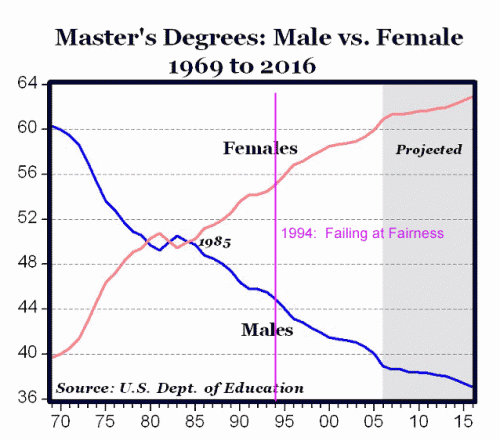Activists are always making exaggerated statements on current problems and extrapolate these into forecasts of doom. One thing activists really, really hate is when people come back later and hold them accountable for these forecasts. You can see it as NASA officials squirm and fire off condescension at skeptics who have the temerity to actually check their global warming forecasts against actual temperatures.
If I had a newspaper, I'd have a special regular feature where I dig back 10-20 years in my archives to find such forecasts of doom and check them against reality (actually, if I had a paper, I would not allow activist's press releases to show up virtually unedited as "news" stories, but that is another matter). Heck, I could have a regular feature just reality-checking old Paul Ehrlich forecasts.
Well, I don't have a newspaper, but I do have a blog, and this is a new feature I am working on. I am still trying to play with various search engines and news libraries (such as the NY Times) to see if I can come up with some kind of query format that efficiently digs up such predictions that are at least 10 years old. I am still a little stumped on this, but I am working on it.
But, as a sort of beta-test of the feature, one such comparison fell into my lap today. I remember my feminist wife reading a book published in 1994 called "Failing at Fairness." This work was a big, big deal at the time. Media such as the NY Times fawned on it. I will let a 1994 review on the Society for Women Engineers' site summarize the book:
Failing at Fairness: How American Schools Cheat Girls eloquently describes the results of years of research into sexism in schools. The study began as an examination of gender bias in textbooks, and evolved into a decade of painstaking classroom observation uncovering a "hidden curriculum" in classroom interaction. Authors Myra and David Sadker present a compelling tale of gender bias in education at all levels.
Taken at face value, the book more than proves the point of the subtitle: our schools cheat girls out of an education equal to that received by boys. The authors do an excellent job of pointing out some of the more subtle ways of favoring boys over girls. However, so many descriptions of incidents of sexism -- blatant, subtle, by old teachers, young teachers, male teachers, female teachers, and even by one of the Sadkers' own "trained" researchers -- are included that it can seem like overkill at
times. In addition, the wealth of statistics can be overwhelming, and yes, even slightly depressing.
One of the more horrifying aspects of Failing at Fairness is the discussion about standardized tests, their historical deliberate design as culturally biased for exclusionary purposes, and the dive in the scores received by girls as they progress through their education.
Current standardized test administrators claim to be more sensitive to cultural prejudices in today's tests, although minority students still score less than white students (at least on the SAT). Also, the book states quite plainly, "Regardless of ethnic or racial background, all American girls share a common bond: a gender gap in test performance that leaves them behind the boys." The prevailing opinion of the discussion group is that the tests are still exclusionary; they are not measuring achievement, but are rather reflecting the way students are taught.
I don't doubt that they found their share of anecdotal issues. I am sure I could find them today. But their overall premise that girls were getting hosed by primary education and that standardized tests were structured to exclude girls from college education made no sense even at the time the book was published:

The chart is from Mark Perry, and he shows a similar picture for bachelor's degrees, where women blew past men in 1981, and in PHDs, where women passed men in 2006. People would laugh at this book today, as most discussion is about under-performance of boys.
I don't know the authors, but I would interpret this as the classic inability of activists to declare victory. I am fairly certain that their hypothesis was far more correct in 1969 than in 1994. But society really went through a step-change in the 1970s vis a vis attitudes about females. The previous generation of women's activists did great work to make these issues plain and help lead change in societal attitudes.
But activists have a really hard time declaring victory. From a quite personal standpoint, declaring victory as an activist is exactly the same as walking into your boss and telling him that the company really doesn't need your job position. Money, prestige, academic advancement, and attention, and (self-esteem, for certain types of people) are all tied to there being a major problem. If there is no longer a big problem, then all this stuff goes away.
